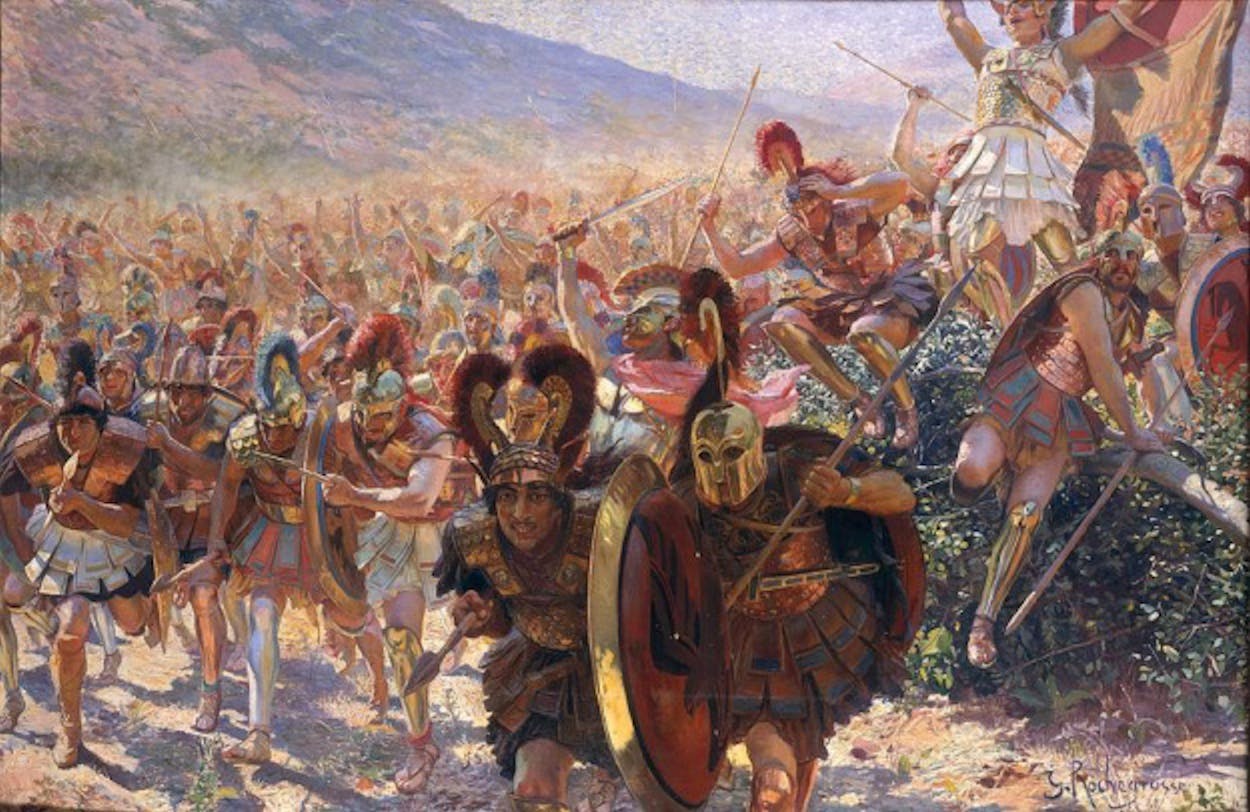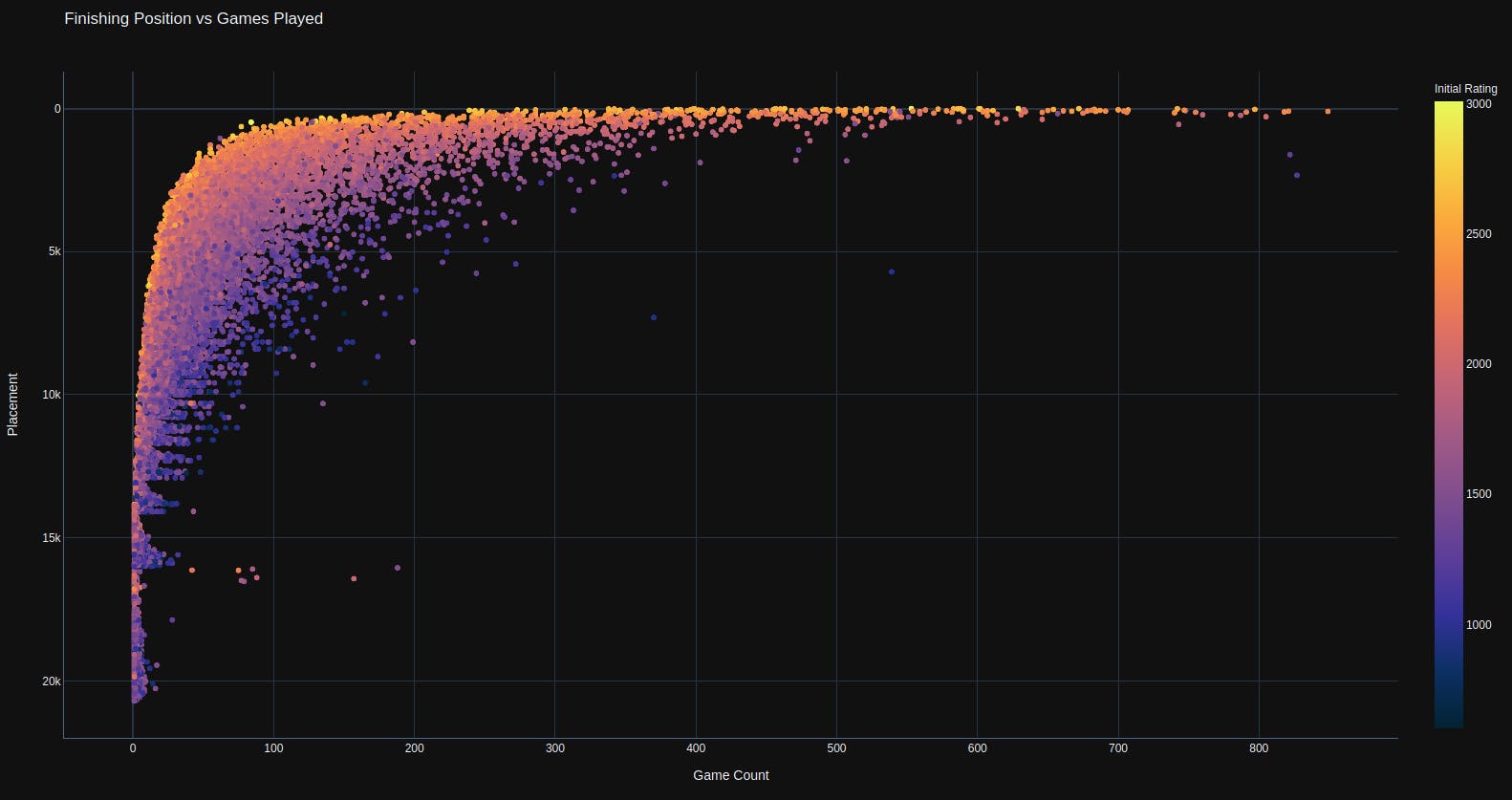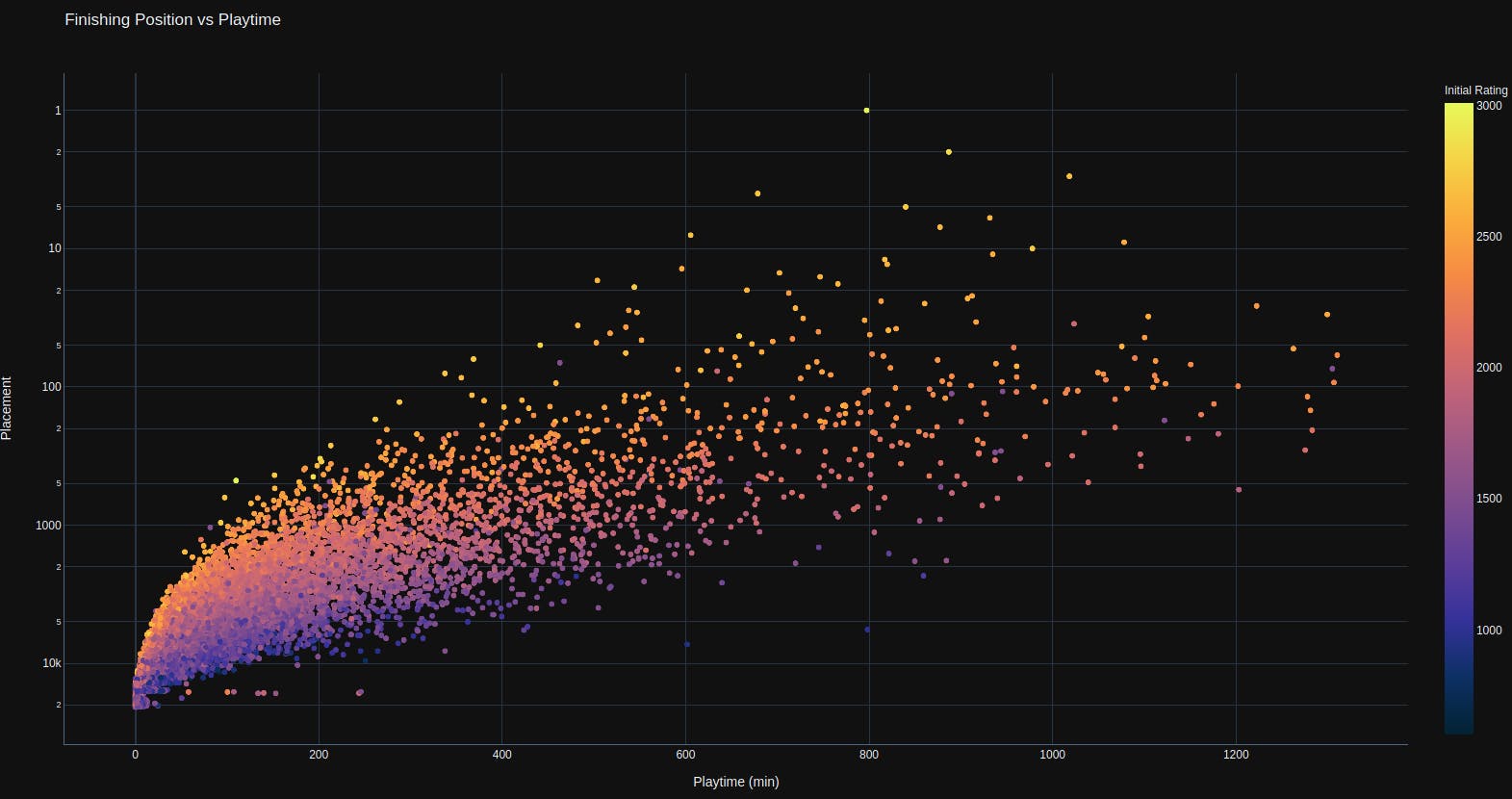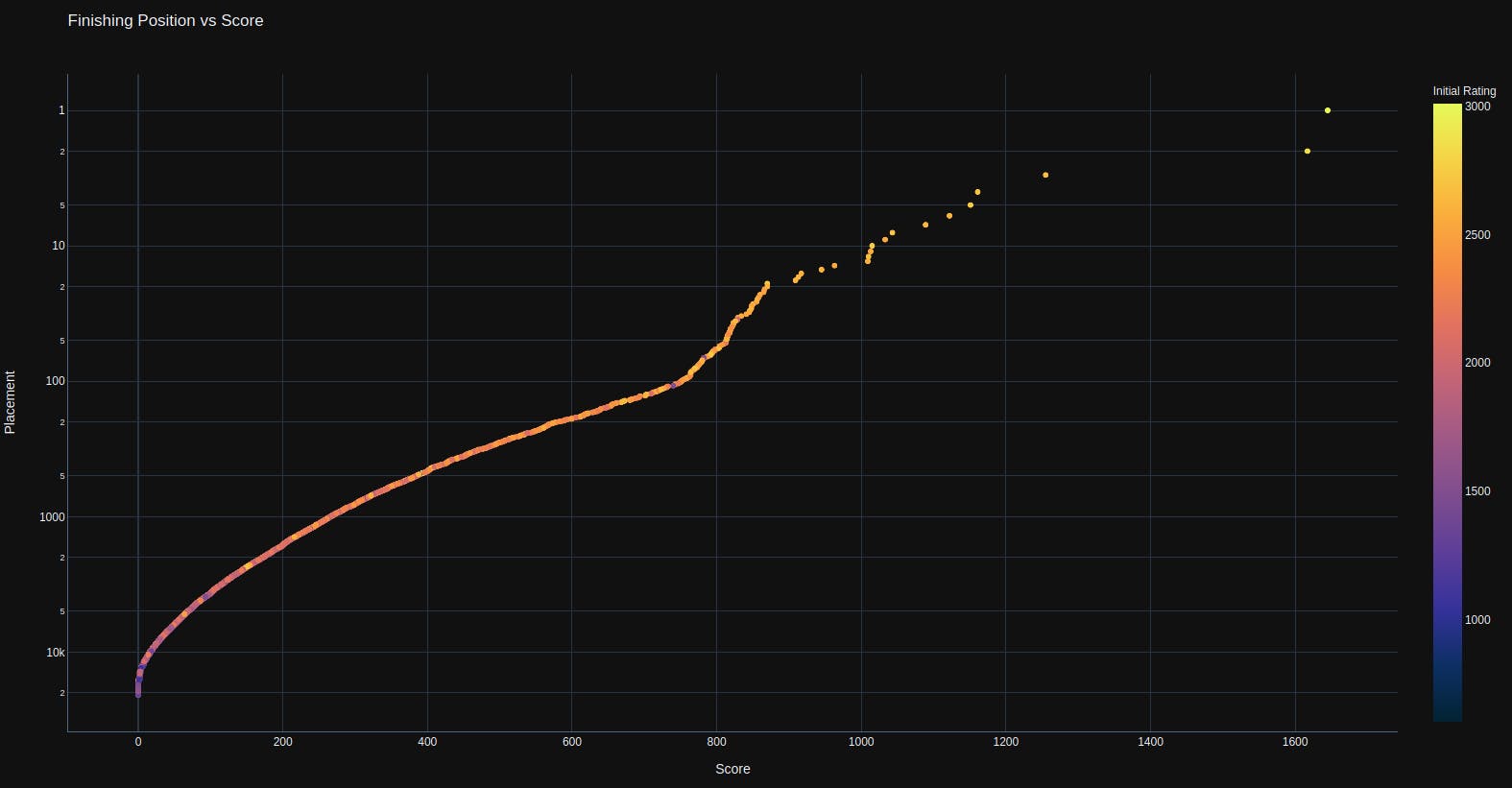A Marathon Event
A summary of the Summer Marathon with a little analysis.

Yesterday, on August 1st, Lichess held its quarterly marathon tournament - a 24 hour event among the largest in online chess. This edition was at the 1+0 bullet time control, and boasted 20,703 entrants, with 18,488 players playing 445,635 games and 31,222,745 moves. It was also one of the strongest marathons we've ever had, with 340 titled players and 900 players rated 2300+ all battling it out for the sought after "top 100" finisher trophies. GM Zaven Andriasian (@Zaven_ChessMood) spent a majority of the tournament in the lead - streaming his play for almost 12 hours - only to be pipped to the post in the final hour by GM Andrew Tang (@penguingim1) who was also streaming. Both players reached an incredible 1600+ points in the arena, and to place in the top 100 players required 751 points. This begs the question, what does it take to reach these heights?
Of the top 100 finishers, the fewest total games played was 239 by the 63rd placed IM Jan Emmanuel Garcia (@Nyxnyxnyxnyxnyx) who spent just over 6 hours in games during the event. In the whole event, approximately 1.5 million person-minutes were spent in game (2.85 years), with each participant playing for an average of around 1 hour 10 minutes. Of course, time spent playing isn't all you need: see the plot below for games played vs finishing position, the colour represents players' initial ratings. The highest rated (yellow) players along the left hand edge do the best for lower numbers of games, but putting the hours in pays off too, with the darker streak to the right hand side showing those persevering warriors.

It's a similar story for playtime versus placement, with some tireless folk playing up to 1300 minutes of a total 1440 possible in the event!

So, how tough is the fight for those trophies? If we take a simple plot of finishing position (log scale) vs score we can see a pretty clear relationship for how many games you need to play to gain places. The log scale means that as you go up the rankings it takes more and more points to gain places. The shallower the gradient, the harder the battle, the steeper it is, the easier it is to gain places. there's a significant deflection around the 100th place in the rankings, competition is much tougher in the places just shy of the trophy places, unsurprising maybe but interesting to see the data nonetheless!

We hope everyone enjoyed the event, and we look forward to the next one!